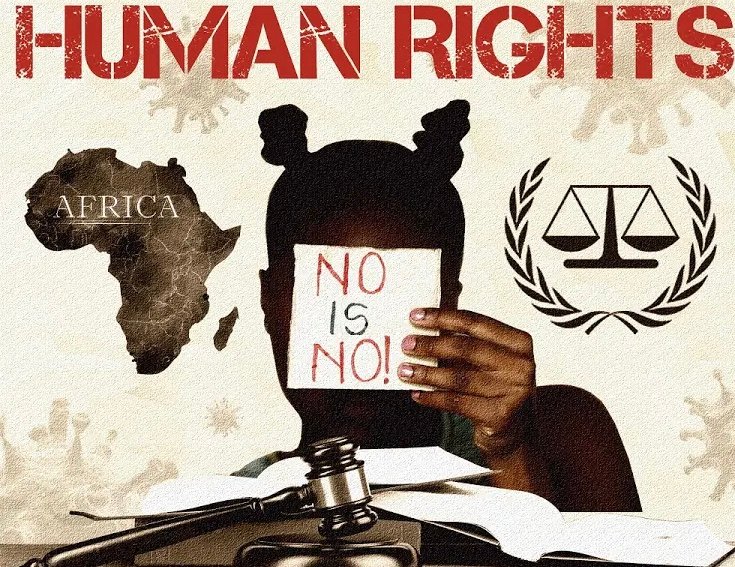In the bustling city of Lagos, Nigeria, Dapo Adeyemi, a passionate human rights lawyer, was preparing for another day of fighting corruption. Dapo, with his deep-set eyes and determined demeanor, had made a name for himself by standing up against the powerful and corrupt elite. His journey into the world of law began when he witnessed his father being wrongfully imprisoned for exposing government officials’ embezzlement of public funds. That incident ignited a fire in Dapo to combat corruption and defend human rights.
Dapo’s current case was one of the most challenging he had ever faced. A group of farmers from a small village in Kano, northern Nigeria, had approached him. Their land had been illegally seized by a multinational corporation with the backing of corrupt local officials. The farmers, led by an elder named Bala, had lost not only their land but also their livelihoods. The company planned to build a factory on the fertile land, disregarding the community’s rights and needs.
Meanwhile, in Nairobi, Kenya, Amina Mwangi, a fearless investigative journalist, was on a mission of her own. Amina’s work often exposed the deep-seated corruption that plagued her country. Her latest investigation involved a high-ranking government official accused of siphoning millions of dollars meant for healthcare. The funds were intended to provide essential services to rural areas, but instead, they lined the pockets of a few powerful individuals.
Amina’s journey was fraught with danger. She had received numerous threats, but her commitment to uncovering the truth remained unshaken. Her investigative work had already led to the arrest of several corrupt officials, and she hoped this case would be no different. As she dug deeper, she discovered a network of corruption that extended far beyond Kenya’s borders, implicating officials and businesspeople across Africa.
In the vibrant city of Cape Town, South Africa, Thandiwe Mbeki, a social activist, was rallying her community to protest against police brutality. Thandiwe had witnessed the devastating effects of corruption on human rights. Her brother, Sipho, had been a victim of a violent police raid in their township. The police, driven by corrupt officials’ orders, had targeted innocent civilians, accusing them of harboring criminals. Sipho, who had always been a law-abiding citizen, was severely beaten and left with permanent injuries.
Thandiwe’s activism focused on holding the police accountable and advocating for the victims of brutality. She organized peaceful protests, worked with legal aid organizations, and spoke at international forums. Her efforts brought attention to the systemic corruption within the police force and its impact on human rights.
Back in Lagos, Dapo met with Bala and the other farmers. They shared their stories, describing how they had been threatened and intimidated by the company’s security personnel. Their crops were destroyed, and their homes were bulldozed. Dapo assured them he would fight tirelessly to get their land back and hold those responsible accountable. He began gathering evidence, interviewing witnesses, and preparing to take the case to court.
As Dapo delved deeper into the case, he uncovered documents that revealed a web of corruption involving local officials and the multinational corporation. The officials had received bribes in exchange for facilitating the land grab. The company had used its influence to bypass legal procedures, disregarding the rights of the farmers.
In Nairobi, Amina’s investigation was gaining traction. She published a series of articles exposing the healthcare scandal, complete with evidence of financial mismanagement and corruption. Her work caught the attention of international organizations, prompting an independent investigation. The public outcry was immense, and the pressure on the government to take action increased.
Thandiwe, in Cape Town, led a massive protest demanding justice for victims of police brutality. The protest attracted thousands of people from all walks of life, united in their call for accountability and reform. Thandiwe’s powerful speech resonated with the crowd as she highlighted the link between corruption and human rights abuses. She emphasized that corruption not only robbed people of resources but also perpetuated a cycle of violence and oppression.
The momentum built by these brave individuals began to yield results. In Lagos, Dapo’s relentless efforts paid off when a judge ruled in favor of the farmers, ordering the company to return the land and compensate the victims. The case sent a strong message that corruption would not go unpunished, and it inspired other communities to stand up for their rights.
In Nairobi, the government official at the center of Amina’s investigation was arrested and charged with embezzlement. The stolen funds were recovered and redirected to the healthcare projects they were originally intended for. Amina’s work not only exposed corruption but also brought about real change, improving the lives of countless people.
Thandiwe’s protest in Cape Town led to a series of reforms within the police force. An independent oversight committee was established to investigate complaints of brutality and corruption. Training programs were implemented to promote transparency and accountability among officers. Thandiwe’s brother, Sipho, received compensation for his injuries, and the officers involved in the raid were prosecuted.
The stories of Dapo, Amina, and Thandiwe illustrate the profound impact that corruption has on human rights. Their unwavering dedication to justice and their refusal to be silenced by threats and intimidation demonstrate the power of individuals to effect change. Across Africa, many others like them continue to fight against corruption, striving to create a future where human rights are respected and upheld.
In the end, the link between corruption and human rights is clear. Corruption undermines the rule of law, deprives people of essential services, and perpetuates inequality and injustice. However, the courage and resilience of those who stand against it offer hope for a better future. Through their efforts, the tide is slowly turning, and a more just and equitable society is emerging.








